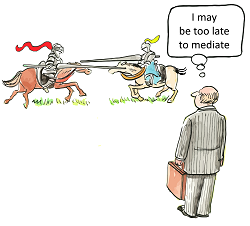Understand Lease Terms Now Before You Get Burned
June 08, 2015

- Sadly, many tenants come to understand confusing terms in their lease when a dispute surfaces.
- The time to understand lease language, and negotiate more favorable terms, if necessary, is before signing the lease.
Here are three terms common in commercial real estate leases. They are frequently overlooked during lease negotiations but actually deserve extra time and attention to avoid problems and costly misunderstandings.
- Time to cure relates to how long a landlord has to wait to evict a tenant who has failed to pay their rent; or failed in a non-monetary commitment. Many leases give tenants a 30 period to pay before they are considered in default. In addition, some states have a statutory period for tenants to cure default before the landlord can take action against them. In California, the period is three days. A typical dispute that arises out of this situation is determining how the lease provision and statutory requirements relate to each other. Every lease should include specific clarification of this relationship.
- Liquidated damages provisions are common in leases and other types of contracts. Their intent is to agree to predetermined limits on an amount that will be paid to settle a breach of contract. However, if the parties to the contract end up in court, the liquidated damages provision is frequently found to be unenforceable. Again, this is an issue that is impacted by rules specific to your state.
- Alternative Dispute Resolution is used in an effort to avoid costly litigation. A landlord might insert a clause calling for Alternative Dispute Resolution for issues that arise, including eviction. Many states, including California, have developed expedited processes for dealing with commercial tenant eviction. However, a landlord may still want to require that tenants agree to ADR for other tenant claims.
As you can see from reading this brief explanation of these terms, each one of them requires expertise to understand the implications and experience to determine how a specific term can impact an individual situation.
At Bayshore Partners, we have the expertise, experience and industry knowledge to guide our clients through the lease negotiation process. The time to gain understanding and clarification is before the contract is signed. When it’s time to renegotiate or renew your current lease, give us a call.
< Return to News